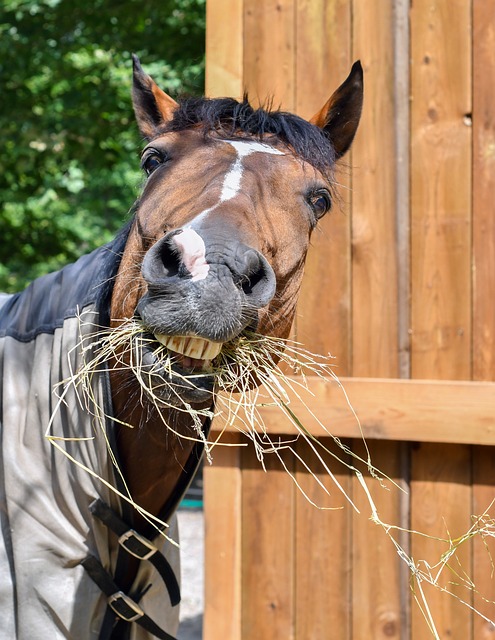- Home
- Understanding What Horses Eat
A Beginner's Guide to Understanding What Horses Eat
Welcome to the wonderful world of horse ownership! Whether you've just brought home your first equine friend or you're considering adding one to your family, understanding what horses eat is fundamental to their health and happiness. As a seasoned horse owner, I'm here to guide you through the basics and provide some essential facts about their diet.
What Do Horses Eat?
Horses are herbivores, which means their diet primarily consists of plant-based foods. Here's a breakdown of the key components:
1. Forage:The cornerstone of a horse's diet is forage, such as hay and grass. Hay comes in various types, including timothy, alfalfa, and grass mixes. Good-quality hay provides essential nutrients like fiber, protein, vitamins, and minerals.
2. Pasture: Many horses graze on fresh pasture when available. Grass provides natural nutrition and helps fulfill their need for roughage. However, it's essential to monitor their grazing to prevent overconsumption, especially in lush pastures that can lead to weight gain or health issues like laminitis.
3. Concentrates: In addition to forage, horses may require concentrates such as grains or pelleted feed to meet their nutritional needs, especially if they have higher energy requirements due to work or growth. These concentrates often contain a balanced mix of carbohydrates, proteins, fats, vitamins, and minerals.
4. Supplements: Depending on your horse's individual needs and the quality of their diet, they may benefit from supplements such as vitamins, minerals, or specific additives like joint support or electrolytes. However, it's crucial to consult with a veterinarian or equine nutritionist before adding supplements to their diet to ensure they're necessary and appropriate.
How Much Do Horses Eat?
Understanding how much horses eat is crucial for maintaining their health and managing their diet effectively. Here are some general guidelines:
1. Forage: Horses should have access to forage throughout the day, either through grazing on pasture or by providing hay in their stalls or paddocks. As a rule of thumb, horses typically consume around 1.5% to 2.5% of their body weight in forage per day. This means a 1,000-pound horse would eat approximately 15 to 25 pounds of hay or grass daily.
2. Concentrates:The amount of concentrates a horse needs varies based on factors such as age, weight, activity level, and overall health. A veterinarian or equine nutritionist can help you determine the appropriate amount and type of concentrates for your horse's specific needs.
3. Water: Don't forget the importance of water! Horses require access to clean, fresh water at all times. On average, a horse may drink 5 to 10 gallons of water per day, depending on factors like temperature, humidity, and activity level.
Key Takeaways:
- Horses are herbivores and primarily eat forage such as hay and grass.
- They may also require concentrates and supplements to meet their nutritional needs.
- Monitoring portion sizes and ensuring access to fresh water is essential for maintaining their health and well-being.
By understanding what horses eat and how much they consume, you'll be better equipped to provide your equine companion with a balanced and nutritious diet. Remember, each horse is unique, so consult with professionals to tailor their diet to their individual needs. Happy feeding!
